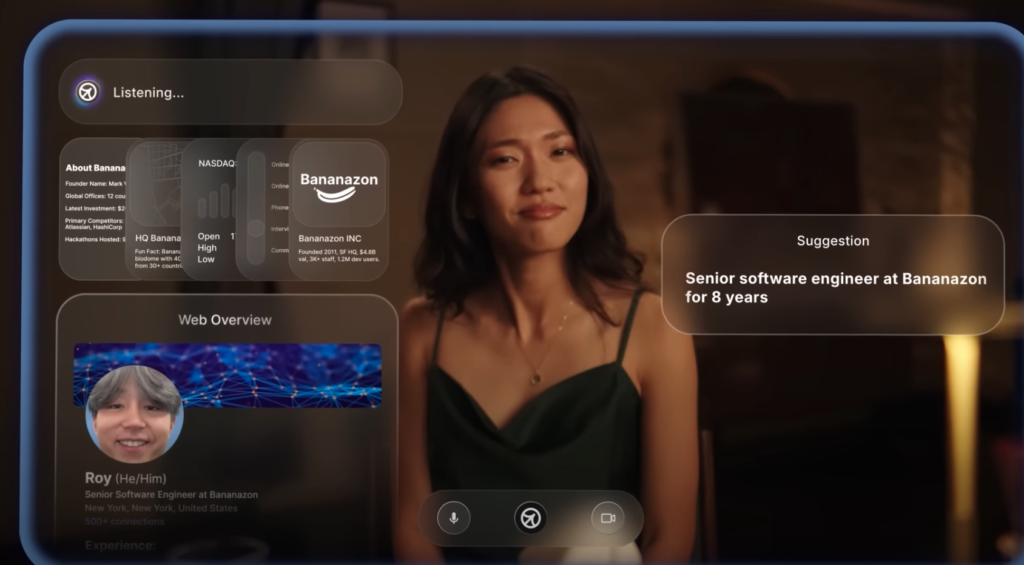
kbtech times | April 28, 2025
In the competitive landscape of modern hiring, authenticity is becoming harder to measure. The rise of real-time AI coaching tools like Cluely is now pushing hiring ethics to a breaking point, raising urgent questions about what fairness, skill, and merit truly mean in the era of artificial intelligence.
While some hail AI coaching as a technological equalizer, others see it as an invisible betrayal — a subtle manipulation that could upend the trust between candidate and employer forever.
How Cluely Turned Interview Coaching into a Real-Time Operation
Interview preparation has existed for decades — mock interviews, coaching services, and practice guides. But Cluely crossed a new threshold by making that coaching live.
Through discreet earpieces, smart apps, or on-screen prompts, candidates now receive real-time suggestions, structured answers, and even emotional prompts during interviews without the interviewer’s knowledge.
The technology behind Cluely is brilliant: leveraging speech recognition, semantic search, and LLM-powered suggestions, it allows candidates to sound polished even if they lack real experience.
But brilliance does not always mean integrity.
Recruiters now find themselves wondering: are they hiring a skilled professional, or someone reading invisible scripts?
Cheating or Leveling the Playing Field? A Deepening Divide
Supporters of tools like Cluely argue that many interviews are flawed to begin with. Bias, nerves, or communication gaps often prevent capable candidates from showcasing their true skills. They see real-time AI coaching as an assistant — helping candidates communicate better, not cheat.
However, critics counter that interviews are designed not just to test knowledge, but to test pressure handling, spontaneity, and authenticity.
Cluely erases these tests.
Instead of responding naturally, candidates become performers — reciting AI-generated answers instead of offering genuine insights.
“If the foundation of hiring is authenticity, Cluely threatens to hollow that foundation completely,” says Dr. Arnav Kapoor, a researcher specializing in AI ethics at the Indian Institute of Technology.
The New Ethical Grey Area for Hiring Managers
For hiring managers and recruiters, the rise of AI-assisted cheating poses a profound dilemma. Should they tighten interview protocols? Should they implement new detection technologies? Or should they simply adapt to a future where AI will always be a silent partner?
Some industries — particularly finance, law, and healthcare — where stakes are high, are already piloting new interview strategies. These include stress testing, hands-on demonstrations, and behavior-based hiring instead of conversational interviews.
But for thousands of smaller firms still relying on traditional Q&A sessions, Cluely presents an existential threat: the potential for hiring incompetence cloaked in polished AI rhetoric.
Where Do We Draw the Line?
Technology has always blurred the lines between assistance and deception. Spellcheck, grammar tools, and résumé optimizers already shape job applications long before human interaction begins.
But Cluely represents something new: an invisible guide turning real-time conversations into staged performances.
In the coming months, businesses, candidates, and governments will be forced to confront a critical question: where do we draw the ethical line in the age of AI?
If we fail to answer it soon, the very idea of a “genuine” interview could vanish altogether.
An Uncertain Future for Hiring Integrity
Whether you see Cluely as an innovation or an intrusion, one thing is certain: it has already changed the hiring game. And unless companies adapt quickly — ethically and technologically — interview cheating through AI will only grow, challenging the very trust that holds professional relationships together.
Stay tuned — this story is just beginning to unfold.






7 thoughts on “The Rise of AI Interview Cheating: How Cluely Is Redefining Hiring Ethics”